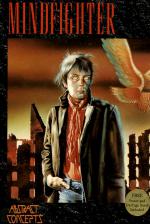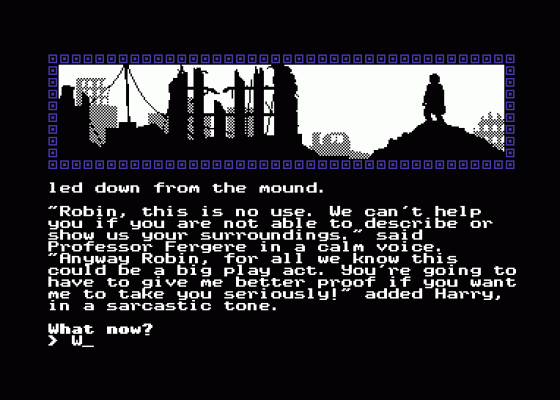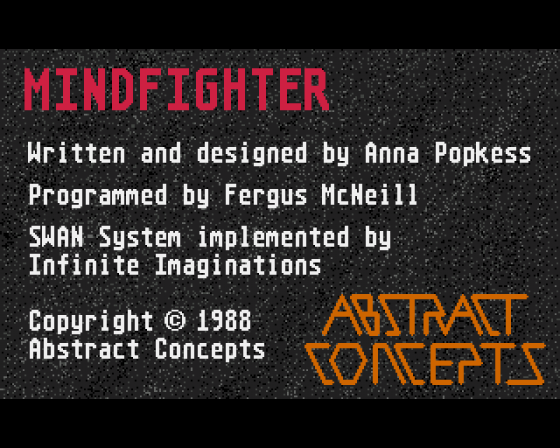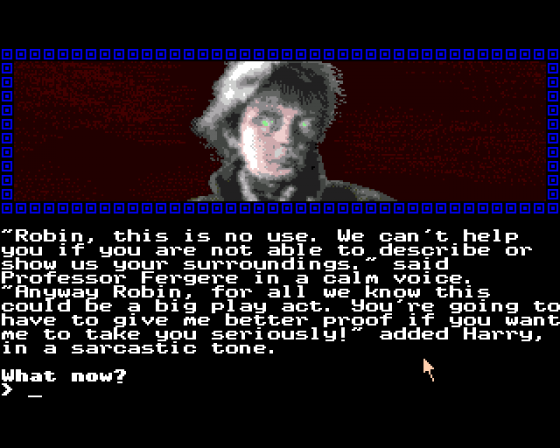
Commodore User
 1st August 1988
1st August 1988
Categories: Review: Software
Author: Keith Campbell
Publisher: Abstract Concepts
Machine: Amiga 500
Published in Commodore User #59
Mindfighter
Robin, an eleven year old boy with some amazing powers, finds himself standing on a mound looking over a scene of desolation and ruin. He's not exactly there, for he is also back at Southampton University in another time, projecting the scene from the mount through his eyes for hiis fellow students of parapsychology to witness together with their Professor.
They soon reach the conclusion that what they are watching is happening in Southampton, a year hence after a nuclear war. Since this is in the future, it is important that Robin discovers the date and the cause of the war so they can prevent it.
The general populace are being brutally enslaved by 'The System', whose guards mete out a cruel justice for petty crimes and casually kill people who are no longer any use to them. To remain safe when he investigates, Robin has to call upon his extraordinary powers of being able to transform his body into the likeness of an animal or bird, as well as telepathic control.
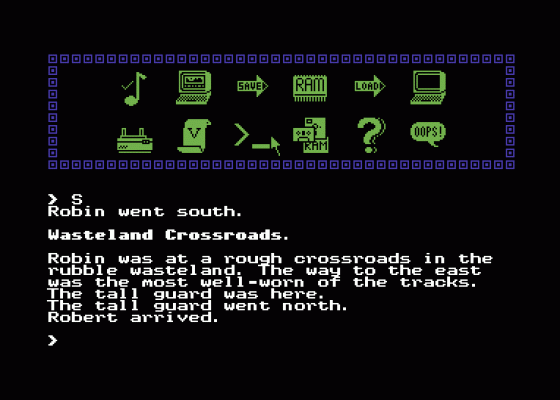
The game has been written using a new adventure system written for Abstract Concepts by Tim Gilberts, of Quill fame. It performs well, accepting multiple complex commands, and has most of the latest features that go to make adventure-playing more flexible: OOPS (retract previous command), RAM SAVE, SCRIPT (send game to printer), VERBOSE/BRIEF, and a facility for recalling and editing the previous command entered. Most features are controlled from icons, displayed by pressing RETURN.
Grey and dismal graphics fill the top one third of the screen, and change with an effect similar to the rotating of a series of vertical shutters.
However, a slick system does not necessarily produce a slick end program, and whilst the section in the instruction manual on command structure gives the impression that this is an Infocom-like parser, the game's performance does not match up to expectations. This is due mainly to some glaring omissions in providing suitable messages in anticipation of likely commands, together with a lack of valid synonyms. For example, EXAMINE all too often brings the response ROBIN COULDN'T EXAMINE THAT, and a newspaper cutting that Robin came across was recognised only by NEWSPAPER and not by CUTTING.
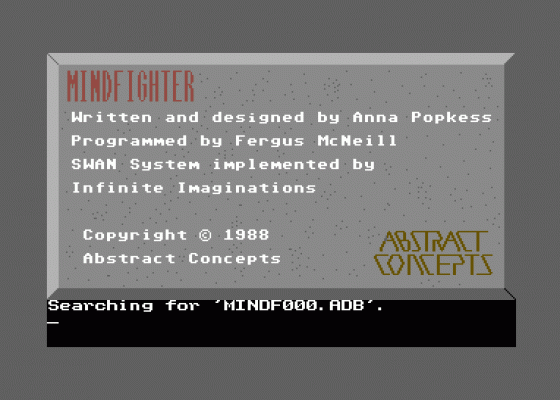
Regular adventure players have learned to put up with that, and indeed Mindfighter is better than many - but it is worse than those of a similar price tag.
In the end, it comes down to the story and the puzzles that determine whether you like a particular game. Mindfighter is based on a full-length novel by Anna Popkess, who was also responsible for the game design. The subject has, of course, been tackled before in Infocom's Trinity. Unfortunately, in Mindfighter, Anna Popkess handles the theme with nowhere near the sensitivity of Brian Moriarty. Indeed, there are some explicit scenes of brutality in the text; in particular, I found the account of the punishment of a thief by the slow amputation of his hand with a blunt knife quite unnecessary, and the subsequent relish of the guard when licking the blood from the knife quite sickening. OK, so perhaps it could happen, one day. But who wants to play it in a game?
The fantasy aspect of the story, too, lacks credibility: instead of being put over as pure unashamed fantasy, as it was in Trinity after the player had entered the mushroom door. Mindfighter seeks to lend credibility to the fantastic powers of Robin and his fellow students, attributing them to the result of a day's successful experimentation in the University.
The 150-page book is supplied with the game, which perhaps accounts for the high price of the package. Alas, it is written in a style that for me, at least, made it a boring read, and with a content that turned me off.
Other Reviews Of Mindfighter For The Amiga 500
Mindfighter (Abstract Concepts)
A review by Keith Campbell (C&VG)
Scores
Commodore 64 Version| Graphics | 40% |
| Puzzleability | 50% |
| Playability | 70% |
| Overall | 40% |
Scores
Amiga 500 Version| Graphics | 40% |
| Puzzleability | 50% |
| Playability | 70% |
| Overall | 40% |

